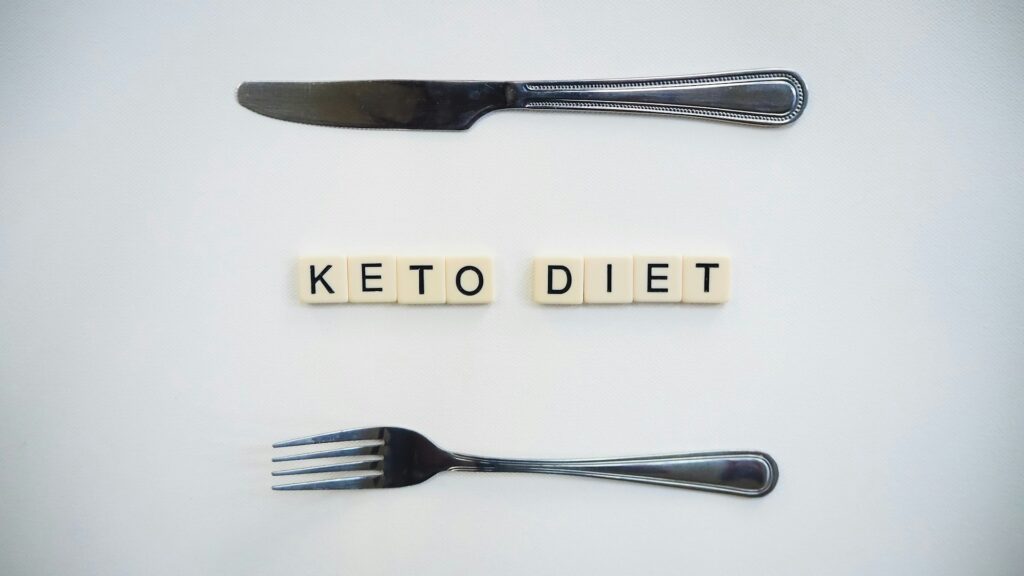Ketogenic Diet: A detailed guide to the Keto diet
A ketogenic diet (or keto diet for short) is a low-carb, high-fat diet that has many benefits for certain groups. Many studies on the keto diet have shown that the keto diet causes weight loss and improves health in some people. The keto-genetic diet can help prevent some diseases such as diabetes, cancer, epilepsy and Alzheimer’s. In the following, we will review a detailed guide on how to make a ketogenic diet. What is a ketogenic diet? The principles of the ketogenic diet are based on a very low-carb, high-fat diet, which is very similar to the Atkins diet and the low-carb diet. The keto diet involves a sharp reduction in carbohydrate intake and its replacement by fat, under which the body undergoes a different metabolic state than normal, called ketosis. When the state of ketosis for the body to burn fat much more efficiently find, to power the brain and fat in the liver to ketone bodies are converted for use as an energy source in the brain are used. ketogenic diet can reduce high blood sugar and insulin in the body, reducing blood glucose and increase ketone bodies can be useful in treating certain diseases. The keto diet is a low-carbohydrate, high-fat diet that lowers blood sugar and blood insulin levels, thereby altering the body’s metabolism from carbohydrates to fats and ketone bodies. Types of ketogenic diets The ketogenic diet has different models that include the following: Standard Ketogenic Diet (SKD): This diet is very low in carbohydrates, moderate in protein and very high in fat. A standard ketogenic diet usually contains 75% fat, 20% protein and only 5% carbohydrates. Targeted Ketogenic Diet (TKD): This diet allows you to add carbohydrates to your diet in some cases, such as during exercise. Periodic Ketogenic Diet (CKD): This diet includes high-carbohydrate and high-fat diets, for example, a 5-day keto diet and a 2-day high-carbohydrate diet. High-protein ketogenic diet: This diet is similar to the standard ketogenic diet, except that more protein is used in the diet, the proportions of macronutrients in the ketogenic diet are 60% fat, 35% protein and 5% carbohydrates. However, only standard, high-protein ketogenic diets have been extensively studied. Rotational and targeted ketogenic diets are more commonly used by athletes and are slightly more advanced than standard ketogenic diets. The information presented in this article is mostly about standard ketogenic diets, although many of the principles used in all types of ketogenic diets are very similar. Does Keto Slimming Diet Help You Lose Weight? A ketogenic diet is an effective solution for weight loss and a therapeutic strategy for the treatment of some diseases such as epilepsy. Research shows that ketogenic diets are more effective for weight loss than many of the low-fat diets recommended for weight loss. That the ketogenic diet attention of most people’s attention is the fact that you can without a calorie diet to calculate the amount of your food intake to limit the weight you. based on the studies that were performed were The keto diet causes you to lose 2 to 3 times more weight than when you eat a low-fat, low-calorie diet Reasons for the regime Kato in the low-fat diet and limit calories to lose weight is a superior expression, such as a protein, elevated levels of ketone bodies in the body, lowering blood sugar and increases the sensitivity of cells to insulin. Benefits of Keto Diet for Diabetics and Pre-Diabetics Diabetes is characterized by impaired metabolism, high blood sugar, and impaired insulin function Diet ketogenic to lose unwanted body fat you directly with an increased risk of type 2 diabetes, prediabetes and metabolic syndrome is associated helps. in one of the studies about the Keto and Diabetes Diet, The ketogenic diet was found to increase cell sensitivity to insulin by up to 75%. Another study of 21 diabetics found that 7 of these individuals stopped taking the ketogenic diet completely. Comparing the rate of weight loss in people who receive a ketogenic diet and people who use a high-carbohydrate diet shows the effect of weight loss in reducing the severity of diabetes, and a ketogenic diet causes more weight loss than a high-carbohydrate diet. Also, about 95% of people on a ketogenic diet were able to reduce or discontinue their medication, compared with 62% of those on a high-carbohydrate diet who were able to reduce their medication. Reduce significantly more. Keto diet and its effect on other diseases The ketogenic diet was initially used to treat neurological conditions such as epilepsy and was an effective treatment for people with refractory epilepsy. Subsequent studies on the keto diet showed that the benefits of the ketogenic diet could be used to treat some other diseases. Diseases that have been studied for the effect of the ketogenic diet include the following: Heart disease: the ketogenic diet may be risk factors for cardiovascular disease such as cholesterol, HDL, blood pressure and blood sugar better. Cancer: Now the regime of ketoconazole for the treatment of certain cancers and slow the growth of tumors. Cancer is used. Alzheimer’s: Ketogenic diet reduces the symptoms of Alzheimer’s and slows the growth of Alzheimer’s. Epilepsy: Various studies have shown that the use of a ketogenic diet causes a significant reduction in seizures in children with epilepsy. Parkinson’s: A study on the keto diet and Parkinson’s disease showed that the keto diet can reduce the symptoms of Parkinson’s disease. Polycystic ovary syndrome: The keto diet can lower blood sugar and blood insulin levels, which is one of the main causes of the ovarian syndrome. polycystic and result in improved disease. Traumatic brain injury: According to an animal study showed that the regime keto can decrease the damage caused by brain damage and speed recovery of the brain after a brain injury help. Acne: Low levels of insulin, reduced sugar intake and processed foods can help reduce the incidence of acne in people. However, research in some of these areas is limited and requires further study and experimentation. Foods You
Ketogenic Diet: A detailed guide to the Keto diet Read More »

